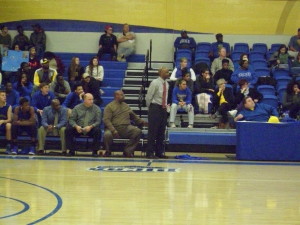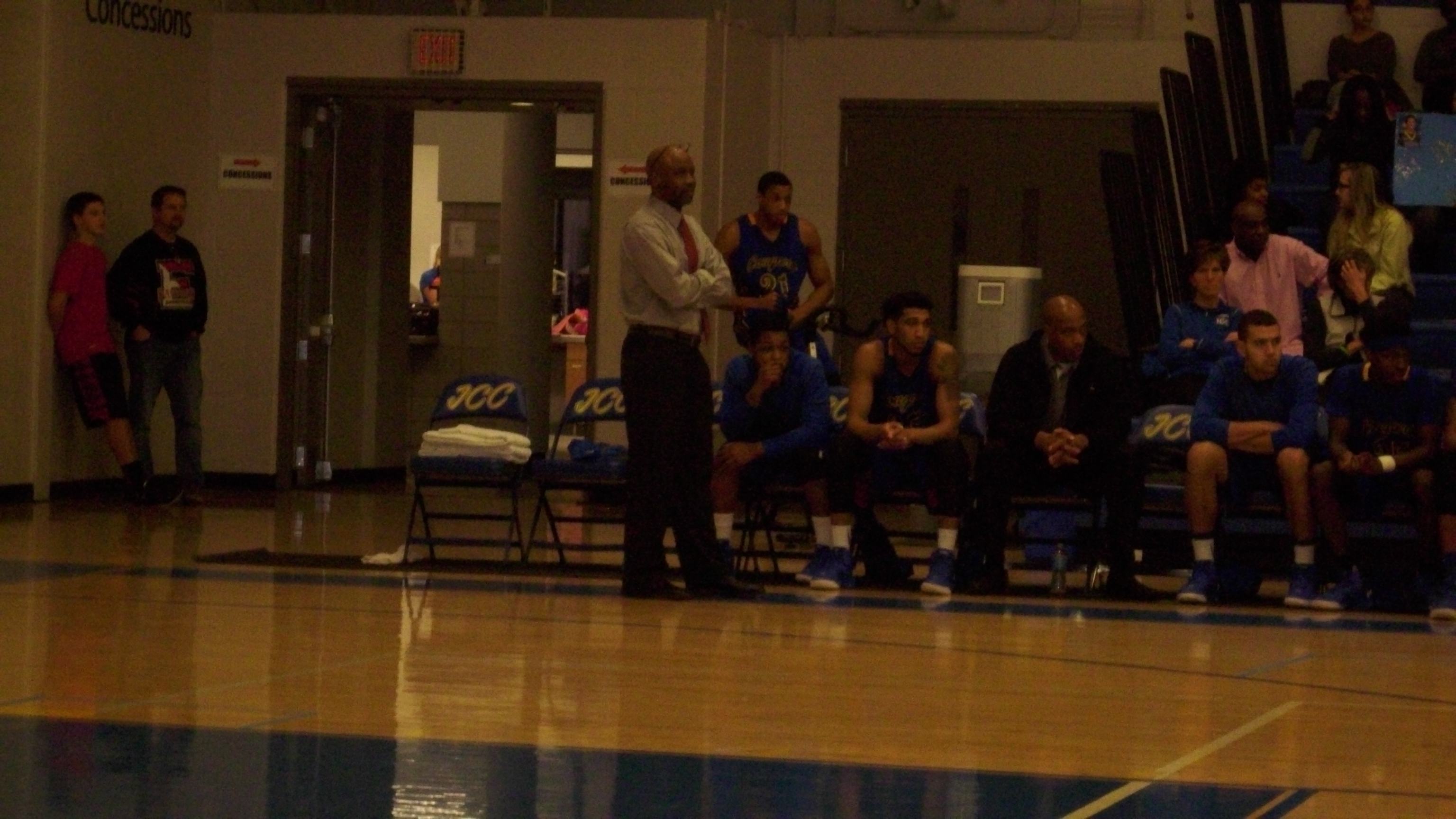Coach Wysinger Experiences Scare and Care
Jeremy Jacob, Harbinger
Feb. 9, 2016
Tony Wysinger was engaging in usual coach activities last Monday night when the Illinois Central College men’s basketball team hosted Rend Lake: instructing his players, discussing strategy with his assistants and, of course, arguing with the referees. The unusual part was it being only his second game in three months due to spending time on medical leave.
“I’m blessed to have a group of kids that played their butts off while I was gone,” Wysinger said before Monday night’s game. “As well as a coaching staff that held everything together. It wasn’t like I had to restart everything, I just kept things flowing.”
Wysinger was attending an event for Lou Henson, his former coach at the University of Illinois, where they were planning to dedicate the court at the State Farm Center in his honor on Dec. 2. It was that same day Wysinger experienced headaches and lower fatigue. Out of concern, his wife suggested that he visit the doctor where they found out the coach had high blood pressure.
“They call blood pressure the silent killer and mine was too high,” Wysinger said. “I didn’t even know I was sick.” Studying the blood work, the doctors determined that Wysinger’s kidneys were not functioning normally and cited peculiar electrolyte levels.
The kidneys aid in balancing electrolytes among many other functions. Electrolytes are found in the blood controlling its composition. Some notorious examples of electrolytes are sodium and potassium.
Wysinger realized that he needed to take initiative and tend to his condition. So he accepted medical leave, including about a week in hospital confinement, and met with his staff. He ultimately named Fred Dixon the interim head coach, Dave Best the defensive coach, Chris Williams the offensive coach, and put Johnnie Williams in charge of making substitutions.

“I really didn’t have to worry about a lot,” Wysinger said. “They did a good job.” There wasn’t much reason for the coach to worry as his plan to maintain order in midst of adversity shielded more from affecting the team. Under coach Dixon’s guidance, the Cougars managed a 6-3 record in the two months Wysinger was away from the team.
“I’m eternally grateful [to coach Dixon],” Wysinger said when asked about his assistant. “And when I say that I mean that from the bottom of my heart.”
Naturally, spending that extensive of a time period without being able to offer his assistance was maddening. An agreement with ICC’s Human Relations department was the trade-off for addressing his condition. Despite not being able to participate in practices and games, Wysinger still found a way to observe and record some areas of improvement.
“I was fortunate the games were streamed online,” he said. “Not being able to go with the guys [on road trips] was difficult.” He referred to the live streams as “ a godsend” that helped lessen the pain of his absence. Wysinger was eventually able to be a spectator at the home games too.
With these options available, coach Wysinger was inevitably able to relay his suggestions to his team. At the forefront was one concerning a lack of execution at the rim.
“In three conference games, one thing that stood out to me was we were missing layups,” he said. “We were missing about eight layups per game and you won’t win in the conference if you do that.” The Cougars have lost their past six games by an average of 7.3 points.
As for Wysinger’s suggested improvements, the doctors, assuming the role of his coaches in a sense, recommended continuing visits to monitor his progress. The most critical alteration in his lifestyle, however, is to make healthier food choices.
“I’ve been to the hospital once in my life before now and never been really sick,” Wysinger said. “You start to think you’re invincible. Now I’m getting older and need to make healthier choices.”
It stands to reason that you can take the court away from the coach but will be futile in taking the passion away from the coach. Another quality you can’t take away, in the case of Wysinger, is a support system.
“I cannot thank enough the people at ICC letting me know the things I could and could not do,” Wysinger said.
His main takeaway. though, is “ family first”–his close family first for taking him to the appointments and caring for his well-being, then his ICC family.

